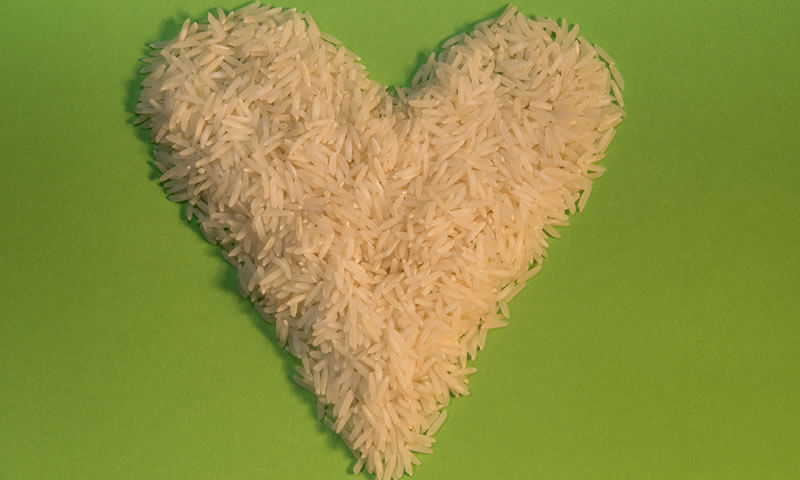Can Birds Die From Eating Rice?
Picture the scene. The happy couple have just exchanged their vow and they’re leaving the church to start their new lives together. The guests gather outside to throw rice at the bride and groom, an ancient tradition associated with good luck and fertility, but just as they’re about to start, someone cries out “Stop! Didn’t you know that rice kills birds?”
It’s a myth so pervasive that it’s been referenced in TV shows like The Simpsons and Cybill. The theory is that wild birds who eat the rice will be harmed when the grains soak up stomach fluids, making them explode. Concern for wildlife has been so great that in 1985, a bill known as “An Act Prohibiting the Use of Uncooked Rice at Nuptial Affairs” was introduced in Connecticut to protect birds who might be unwittingly harmed by leftover rice. The politician introducing it even went so far as to claim that several ministers had told her that after weddings they frequently saw multiple birds keeling over from being poisoned.
How harmful is rice really?
Mary Jo Cheesman of the USA Rice Federation calls the myth “silly” and “unfounded.” Although she has a vested interest in wanting to protect rice sales, her opinion is also backed up by academics and ornithologists.
Ned Johnson, a professor of biology at Berkeley who lectures on avian diets simply stated “it’s a myth.”
In fact, far from being dangerous, many birds love rice. Ducks and geese feast on it to fuel their spring migration, much to the annoyance of rice farmers. There’s no difference between the rice growing in fields and the rice thrown at weddings as far as birds are concerned.
Still don’t believe me?
Let science have the final word.
In 2002, biology professor James Krupa carried out a series of tests to see whether there was any credibility to the myth.
First they soaked white rice in water to see how much it expanded. They discovered that its volume increased by 33%, which sounds scary. However, when they soaked ordinary bird seed in water, it increased by a massive 40%, but we don’t hear about anyone trying to ban bird seed.
After experimenting on fake birds, Krupa and his students decided it was safe to test rice on real live birds. Krupa happened to have flocks of doves and pigeons at home, so he selected 60 to live off a diet that was exclusively rice. Not one single bird showed any signs of discomfort. There certainly weren’t any exploding birds.
So why do so many wedding venues ban rice?
You may find that your church or reception hall insists that either you keep rice in small tulle and chiffon bags if you want to throw it or ban it all together. However, the reason for this has nothing to do with protecting local wildlife.
In fact, the mundane reality is that rice – and confetti for that matter – can be very difficult to sweep up, even with a vacuum cleaner. Would you want to leave your wedding to find mess and debris still lying around from the previous couple?
However, although the birds might be safe, rice can still be dangerous, believe it or not. If one of your wedding guests steps on rice, they could fall over and injure themselves. Nobody wants an accident to ruin their big day, which is why venues are increasingly telling people to leave the rice at home.
If you do want your guests to greet you as you leave your wedding, why not give out rose petals to throw? It’ll create a beautiful effect without the stress.
What do you think about throwing rice? Is it a menace or an important tradition that should be preserved? Let us know in the comments.

